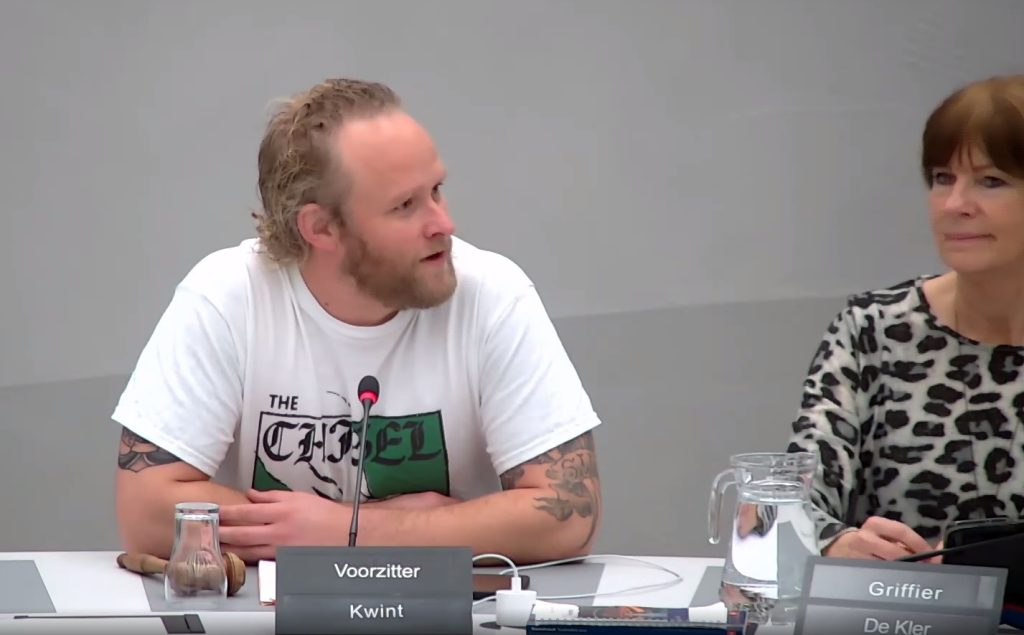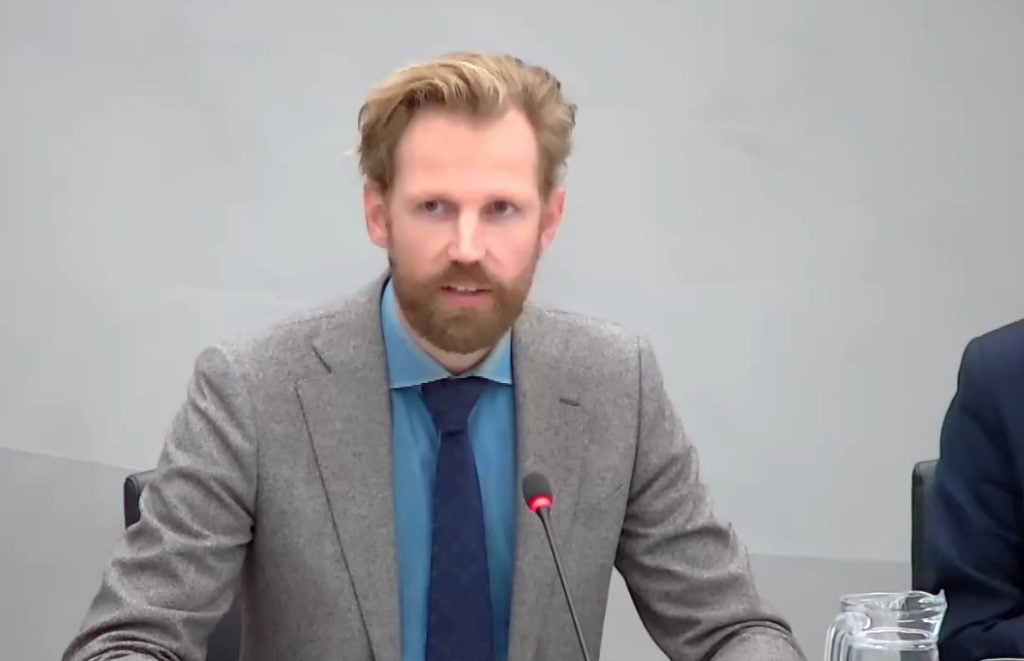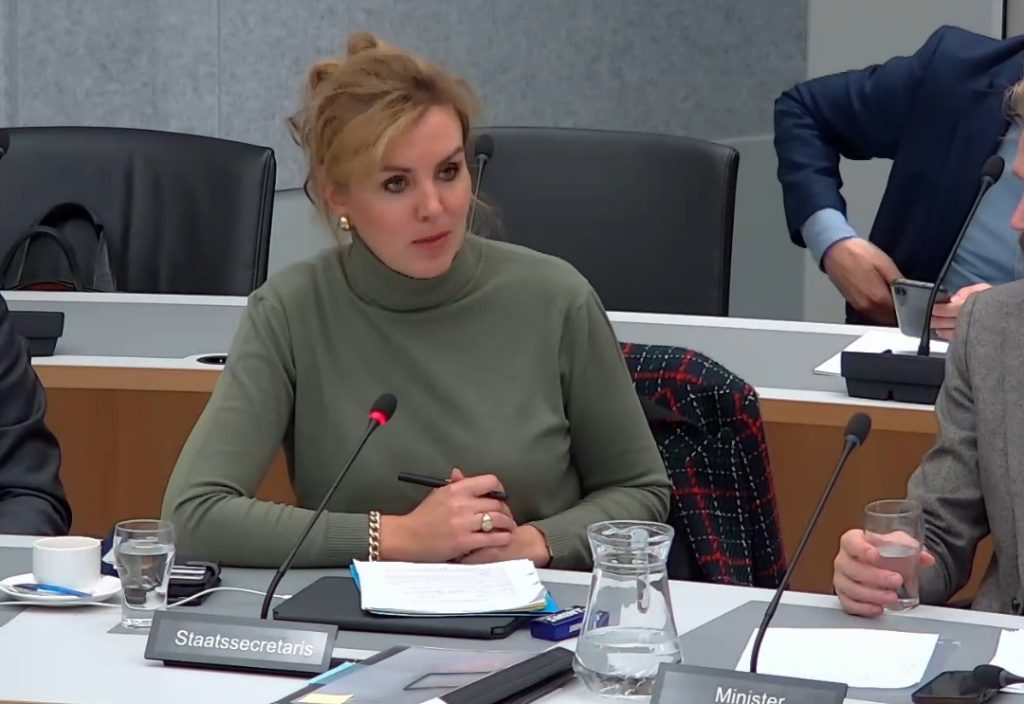Politics The Hague points to the responsibility of the municipalities.
Today, in the committee debate, the current problems in the implementation of student transport by municipalities were discussed in detail. D66 wants pupils to be able to go back to school after the autumn holidays with peace of mind. The party indicates that many municipalities do not succeed in properly arranging the transport of students. Member of Parliament for D66 Paul Van Meenen says that it is not The Hague's task to financially support the municipalities in this regard, but places the responsibility back on the municipality. “If the municipality is demonstrably in trouble, they can still report it,” says Van Meenen.
tenders
The problem for Van Meenen is that municipalities have left it to private companies and he believes that we should see whether that is still desirable. It may also be a good idea to look at the form of the tenders. Chairman Peter Kwint (SP), who temporarily put his chairmanship aside to be able to ask Van Meenen a question, believes that the steering mechanism of the current form of tendering should be overhauled, which allows municipalities to steer towards the lowest purchase price.
René Peters (CDA) from Oss argues that municipalities should do this well and no big words should be spoken from The Hague, except to aldermen in the municipality where things are going badly, that they should do better.

round table
Lisa Westerveld (Groenlinks) acknowledges that what we have to solve together is a dilemma. “Not only the right to education but also the right to self-determination is being violated”. As far as she is concerned, during the round table, at which VNG was not present, various solutions were proposed, such as the use of private taxis, coach companies and the accelerated delivery of driver cards. Wherever there is no clear responsibility, authorities point at each other and we must get rid of that as soon as possible.
For Mariëlle Paul (VVD) we must immediately look for a solution and only then look for a solution for the longer term. She also believes that the municipalities are not properly fulfilling their task of implementation. We often talk about problems, but fortunately many things also go well. “Drivers work every day with a lot of passion and it is best to draw attention to that”. At the same time, it is also important that attention is paid to children with disabilities and their parents.
small companies
For the SP, Member of Parliament Peter Kwint asks whether the cabinet recognizes that the current form of tender has led to a race to the bottom. It may be a good idea to also look at smaller taxi companies that can best help with the implementation of student transport, but cannot get through the current procedure due to the form of the tender.

For Barm Beertema (PVV) the problem is that everyone shifts the responsibility to the other and in the end there is no solution. Beertema praised LBVSO's efforts to draw attention to the urgency of the problem. He does, however, wonder whether it is an economic offense if a carrier does not deliver what was agreed?
model regulations
Municipalities nationally have the VNG model regulations followed when the tender was issued and have not slept in its implementation in recent years. Now that the problems are reaching the Hague MPs from all corners of the country, questions are being asked. As long as drivers are fobbed off with starvation wages, they will look for another job. Still, the question remains why things are going well in many municipalities and larger municipalities not? Is a bag of money for the municipalities the solution or not?

For Dennis Wiersma it is an uncomfortable debate. “I have to get everything I want from other parties.” Everything that he thinks is not going well is not arranged in the short term. The Minister stated that there was little he could do in the short term except to encourage the municipalities to start a discussion with the parents at the kitchen table. In short, Wiersma argues that he can do little in the debate as far as responsibilities are concerned.
"We need to look at the tenders in target group transport and organize it better. The average contract for a driver is 16 hours. Not that people no longer want to work, but that's just how it is organised.
Dennis Wiersma Minister for Primary and Secondary Education
In the short term, according to Wiersma, municipalities can approach players who are not in the tender to want to help. It is one of the 'emergency bandages' that can contribute to a solution in the short term. The deployment of volunteers and the use of street taxis are possible solutions. The fact that parents arrange transport themselves and can submit receipts to the municipality can cause very complicated situations. According to the Minister, we must be careful about the fact that municipalities increase parental self-reliance. It can help municipalities see it as the easy way to solve the problem.
With regard to the longer term, the cabinet wants to do something through Wiersma to keep the conversation going to look at the tenders. Providing additional financial support to the municipalities is not a solution to the problem. Municipalities can and must focus much more closely on quality and hold the transport company accountable for implementation. Contracts must be fulfilled as agreed. Within a tender you could also agree that small carriers are part of the implementation. In practice it appears that many of these smaller parties are already hired by the control centers, so this is by no means a real solution for the shortage in the longer term.
decentralization
The question is whether it is smart not to decentralize in the longer term, according to Wiersma. He wants to include this point in the longer-term discussions. He does indicate not to send him into the forest without help and asks the House to help with this.

The State Secretary for Infrastructure and Water Management Vivianne Heijnen argues that the use of large buses in target group transport is not always the solution. She wants to extend the period during the apprenticeship as a taxi driver from four to six months. The learn-work trajectory (lwt) now gives a driver the opportunity to gain practical experience for a maximum period of four months by performing contract transport, without being in possession of a professional driver card. The driver's diploma must be obtained within four months.
working conditions
Conditions of employment are a matter between employers and employees, and she is in regular contact with the KNV about this. In some cases, public transport can be a solution. But customization is always necessary in target group transport where a taxi or van is necessary. Heijnen calls on the unions and employers to come to an agreement as soon as possible so that strikes do not put additional pressure on the problem. “It is important for every sector that you have everything in order”, but not its task to manage the employers (KNV). As a government, they have no influence on the establishment of a collective labor agreement, not with Taxi and Healthcare transport and not in public transport.
model specification
Purpose of the model specification is to promote purchasing aimed at quality for travelers and a fair position for carriers and their employees. Municipalities in particular purchase this custom transport for their residents with a WMO indication and for pupils who need transport to school. The model specification for healthcare transport has been compiled on behalf of member healthcare transporters of KNV.




